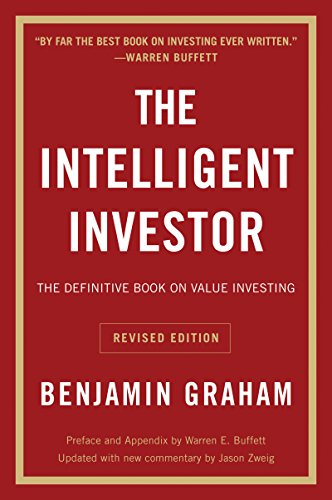What does it cost to be a freelancer? The answer doesn’t have to be everything. Just like everything, freelancing has both advantages and disadvantages. You’re your own boss; no more need for a long commute, no more annoying co-workers, and you decide your working hours.
In exchange, though, you find yourself often dealing with an unreliable salary, costs you didn’t expect to pop up, and virtually no free time to even start thinking about saving up. But freelancing and its finances don’t have to be as difficult as everyone makes it out to be.
Today, we’re bringing you money management tips and tricks for freelancers. Let’s get started!

The Intelligent Investor
by Benjamin Graham
⏱ 17 minutes reading time
🎧 Audio version available
The word “budget” often scares away even seasoned freelancers. Yes, budgeting and laying out a specific plan can be time-consuming, but it’s one of the necessary evils of life. Since you’re your own boss, you must track your own finances.
Tracking
Before we even get started, the first trick to being the master of money management is tracking. That means finding out exactly how much money you possess.
The point is to spend less than what you earn, and you can’t do that if you don’t know how much money is coming in and how much is going out of your account every month.
There’s no need to get any fancy apps. Start by sitting down with a pen and paper and a good old calculator. Or if you prefer, use a simple spreadsheet.
The 50/20/30 Method
The 50/20/30 method means you allocate no more than 50% of your income to necessities, no more than 20% to paying yourself a salary, and no more than 30% of spending.
Necessities are expenses such as rent, transportation, groceries, and utilities. The salary isn’t for luxury spending; it’s for your savings account, retirement fund, and paying back debts. The free spending is meant for entertainment, going out, shopping, travel, et cetera.
The Zero-Based Budget Technique
The zero-based budget technique is perfect for freelancers. It’s flexible, handles variable incomes, and keeps your spending low.
So, you start with a “zero base,” then every function is analyzed for its needs and costs—rent, bills, eating out, and such. The difference between a traditional budget and a zero-based one is that traditional budgeting is about “how many” expenses you have, while zero-based budgeting is more about the “why.”
The budget is then built around what is needed for just the upcoming period, not related to whether or not the budget is higher or lower than the previous one. After you allocate all your money, divided into expenses, savings, and debt payments, the goal should be that your income, minus those expenditures, equals exactly zero by the end.
The first step is knowing your income—that will be the total of your paycheck, depending on each month—so you know how much money you have to work with.
Step two is knowing how much you typically spend—what your expenses are. This is where you identify certain expenses to cut and other areas that need more money.
Last, categorize all your expenses. The most important spendings should be identified first, followed by your needs and wants, then debts, your emergency fund, and saving goals.
If there are any extra expenses, such as wanting to save up for a travel fund, then make a new category for that fund. Want a new car? Another category, and so on.
Buy the Essentials First
Now that we have established a couple of budgeting methods, how about a few tricks?
As much as we would like to spend a giant payment once it comes, that’s dangerously reckless for freelancers.
Freelancers don’t have the luxury of a fixed income that gets dropped in their bank accounts every month with taxes and pensions already taken out. So, when they receive their checks, they can have a celebratory night and spend all they can without fearing that their actions are going to have that big of an impact on the future.
As freeing as freelancing is, no freelancer has the guarantee of a fixed income on a yearly basis, let alone every month. This means that you have to be smart with your paychecks, whether it’s double of what it was last month or if it’s half.
Buy the essentials first, pay your bills, and put in the required amount of money—the tips and tricks for saving are coming right up, so keep reading!
After all these expenses are paid off, then you can start looking at luxuries—at least until the time where your income is worth way more than your expenses.
And cutting down on unnecessary expenses and being frugal is how you achieve the comfort of a semi-stable career.
Extra expenses include magazine subscriptions that you don’t really keep up with anymore, a cable service that you ignore in place of Netflix, et cetera. Take a look at your budget and cut out similar items.
No More Starbucks
There is no boss to remind you that you need to clock in at a specific hour, nor are there any co-workers who give you their coffee orders if word gets around that you’re doing a coffee run.
Unfortunately, coffee drinking is one of the many harmful spending habits of a freelancer that affect them in the long run. While it’s important to take a break and indulge in a cup of coffee, buying an overpriced latte every day from the coffee shop or Starbucks will wreak havoc on your budget.
If you’re a freelancer, chances are that you’re working from home. Why not cut down on costs and transportation and make that cup of coffee at your house?
Limit Takeout
Why are freelancers always shown in the movies surrounded by bags of takeout food, pizza boxes, and Red Bulls?
Probably because that scene isn’t far off from the truth. People underestimate how time-consuming this profession is and how it seems to blend the days and the nights. Suddenly, you look up and find that there is no lunch—nor the time to make lunch—so what do you do? You order a pizza.
It’s crucial that you not only learn to better manage your money but also learn how to manage your time. Make time for cooking; otherwise, half of your earnings are going towards overpriced meals that you can make at home for a lower price.
Every once in a while, reward yourself with a dinner out, but don’t go overboard.
Only Make Future Plans with the Money You Have
Freelancing is notoriously known for having some crazy busy months and other months that drag. That’s why a golden money management tip is to only plan with the money you already have and are guaranteed to get. Never count on “possible” income.
Don’t assume that the client, no matter how loyal they are, is going to always be there. You never know when your paycheck will be cut in half, so it’s always necessary to restrict yourself.
Related: The Only Two Finance Books You Need to Read
Have More Than One Gig
No matter how much one client pays you, don’t put all your eggs in one basket. Having other ways to bring in money is arguably the most important thing you can do as a freelancer.
This is how freelancers are able to dump the reputation of having unreliable income streams—by having several of them that can sustain them long-term.
One, two, or even three clients aren’t enough even if the work they give you is sustaining you and your expenses at the moment. If even just one, never mind two of them, stops hiring you, you’ll find yourself not knowing what to do.
Buy Refurbished Instead of New
This is another frugal tip. It’s tempting to buy a brand-new, shiny Macbook, especially if your work solely exists online. Buy the Macbook if you want, but instead of getting it at the Apple Store, consider switching to buying inexpensive refurbished items.
They’re just as good as new items, and some come with warranties.
Have Separate Personal and Business Bank Accounts
This is the holy grail of money management for freelancers. Having separate personal and business accounts will provide immediate results.
Your freelance business account will help you monitor your income. Whenever you need to pay yourself a salary, transfer the money with the built-in tool the bank provides.
This is the same as when experts recommend dividing your time as a freelancer, so it doesn’t take over your life.
What Is Snapreads?

With the Snapreads app, you get the key insights from the best nonfiction books in minutes, not hours or days. Our experts transform these books into quick, memorable, easy-to-understand insights you can read when you have the time or listen to them on the go.


